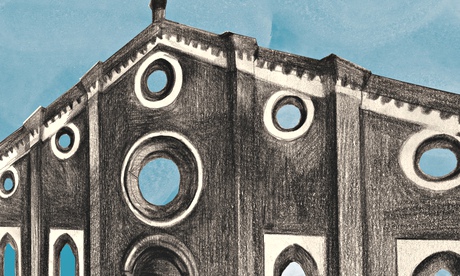
I was in Milan, alone, for work, with time to kill, so I bowed to tourist cliche and went to see the Last Supper. The only slot available was early on Sunday, and just after sunrise the city was deserted; I reached the church of Santa Maria delle Grazie as the priest was welcoming the first worshippers. Minutes later, I was escorted, with 20 others, through security doors to the dim convent hall where Leonardo's painting fills one wall. The hour added something otherworldly to the atmosphere. None of us seemed fully awake; the silence felt tangible. I'm aware this was a boringly predictable location in which to feel the spine-shiver of something beyond words (transcendent? divine?). But I did, and powerfully. I'm no expert, but maybe there's a reason this particular picture of some guys eating some bread is more celebrated than any other.
There is a name for spaces such as this: "thin places", a Celtic Christian term for "those rare locales where the distance between heaven and Earth collapses", as Eric Weiner puts it in his spirituality travelogue, Man Seeks God. They've been called "the places in the world where the walls are weak", where another dimension seems nearer than usual. They might be traditionally religious spots, but they needn't be: Weiner's personal list includes Istanbul's Blue Mosque, but also Hong Kong airport and a hole-in-the-wall Tokyo bar. The Irish origins of the phrase won't surprise anyone who's stood on windswept Donegal cliffs or watched dolphins off the Sheep's Head peninsula, when thought falls away and only a luminous quality remains.
Non-religious people, like me, seek non-religious explanations for what's going on, and psychologists have tried to help. Perhaps it's related to "emotional residue", which describes the way we can't help thinking of rooms previously occupied by sad people as having a sad vibe. In Milan, was I imagining the residual raptures of 15th-century Christians? In her book The Power Of Place, the science writer Winifred Gallagher even suggests that electromagnetic fields, generated by certain kinds of rock, might make some locations feel strange. She quotes one neuroscientist speculating that mystical visions at a Coptic church near Cairo might have been related to seismic activity nearby.
Maybe. But I'm not sure I want to know what brain scans tell us about thin places, or how people respond to psychology questionnaires right after visiting the Grand Canyon. We're in the territory, here, of the ineffable: the stuff we can't express because it's beyond the power of language to do so. Explanations aren't merely useless; they threaten to get in the way. The experience of a thin place feels special because words fail, leaving stunned silence. "Anybody who goes through life with open mind and open heart will encounter these moments of revelation," writes Roger Scruton, the philosopher. "Moments that are saturated with meaning, but whose meaning cannot be put into words."
My Milanese moment was swiftly punctured. I'd rented an audioguide handset, and on my way out left it in a tray marked "audioguide return". Inexplicably, this enraged the attendant, who yelled at me for not handing it to her instead. "Why you do that?!" I was back to ordinary life with a jolt. Outside, the sunlight was bright; the traffic was building. With the Last Supper fading into memory, I went to find some breakfast.
• oliver.burkeman@theguardian.com
Follow Oliver on Twitter.

